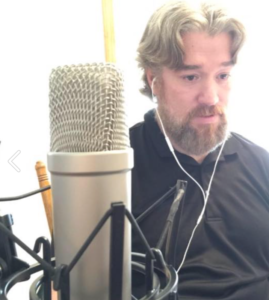 In early September, Len Pettis of Bible Thumping Wingnut debated Chris Date of Rethinking Hell on the topic of “conditional immortality.” Conditional Immortality is Annihilationism repackaged; it states that the righteous are raised to everlasting life, but the wicked are destroyed, and Hell is the means of their destruction, rather than an abode of eternal torment. Len joins me to defend the historical, orthodox view of Hell and to address the problems and dangers of the conditionalist viewpoint.
In early September, Len Pettis of Bible Thumping Wingnut debated Chris Date of Rethinking Hell on the topic of “conditional immortality.” Conditional Immortality is Annihilationism repackaged; it states that the righteous are raised to everlasting life, but the wicked are destroyed, and Hell is the means of their destruction, rather than an abode of eternal torment. Len joins me to defend the historical, orthodox view of Hell and to address the problems and dangers of the conditionalist viewpoint.
Podcast: Play in new window | Download (Duration: 1:25:04 — 39.2MB)
Subscribe: RSS | Subscribe to Echo Zoe Radio
Outline of the Discussion
- “Conditionalism” is a slick repackaging or re-marketing of Annihilationism
- Conditionalism rests upon a three-legged stool of assertions:
- The purpose of the Gospel is to rescue people from death to life.
- Immortality is a gift that God will grant only to the saved.
- Death and destruction will happen in Hell.
- Conditionalists refer to the orthodox view as “the traditional view.” They use the term “traditionalist” as a pejorative.
- This is not just a secondary doctrine; it affects many other areas of doctrine, most notably the Gospel and the Atonement.
- We would agree on the first leg of the Conditionalist stool; the Gospel does rescue people from death to life. The problem is how we define life and death.
- The same applies to the second leg of the stool. The problem is how we define immortality.
- Likewise on the third stool, how do we define destruction?
- Nicodemus took a strict, hyper-literal view of being born in John 3; likewise, the conditionalists take a hyper-literal view of words like: life, death, destruction, and immortality.
- The hermeneutics is backwards. Jesus exposits Isaiah 66 in Matthew 25, but the conditionalist view uses Isaiah 66 to explain Matthew 25.
- The differences in the views can often be chalked up to equivocation; using the same terms, but with different meanings.
- Interjected into the discussion is the idea of Physicalism vs. Dualism; and along with Physicalism is the doctrine of soul sleep. This gets to be a dangerous doctrine because it affects how we view the death, burial, and resurrection of Christ. If soul sleep is true, then one person of the Trinity ceased to exist for three days; which has serious implications for our understanding of the Godhead, and brings us into the realm of heresy.
- When someone emphasizes their use of hermeneutics, pay attention, and don't assume they actually used the hermeneutics they're espousing to reach the view they are advocating.
- Our view on Hell affects our handling of the Doctrine of the Atonement, specifically the Doctrine of Propitiation. Christ alone is the propitiation for our sin. Conditionalism inherently requires that our own ultimate death (annihilation) also serves as propitiation for our sins.
- Ultimately there is nothing for the sinner to fear if conditionalism is true. We will die, be resurrected, and die again, but ultimately we'll be dead; we don't have to worry about God's wrath any more than the very process of dying.
- While Len won't call the Conditionalist view “heresy,” he wonders if he could do street evangelism with a conditionalist. How do you preach God's judgment for sin alongside someone who has a very different view of how that judgement is carried out?
Scriptures Referenced
- James 3
- John 3
- Isaiah 66
- Matthew 25
- Revelation 14:9-11
- Revelation 20:10
- Romans 6:23
- Hebrews 9:27
- Romans 6:3
- Romans 5:12, 17
- Romans 5
- Jude 7
- 1 Corinthians 15:53-55
- Mark 9:43-48
- John 17:3
- 1 John 4:10
Additional Resources
- Hell Debate – Len Pettis vs Chris Date – “Is Conditional Immortality Biblical” – Audio | Video
- Rethinking Conditionalism – GeorgeE Alvarado: “Defending. Contending.”




